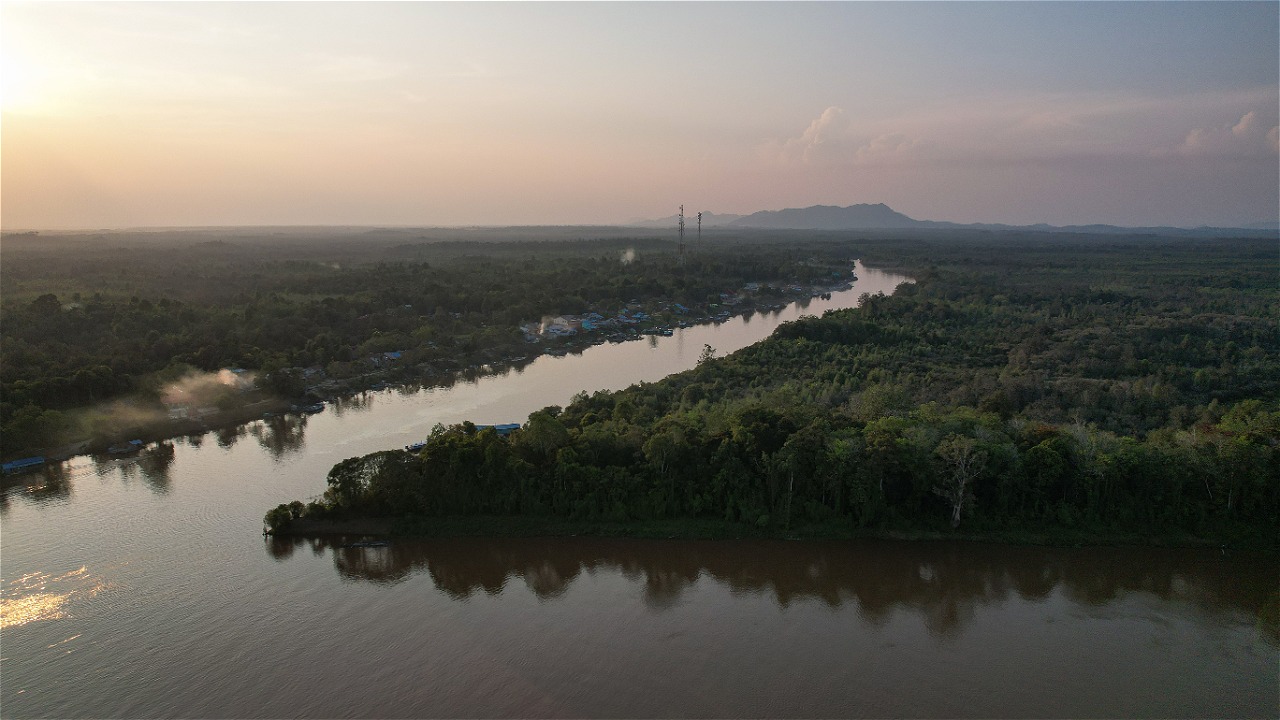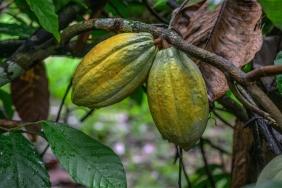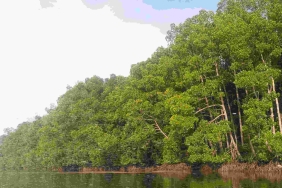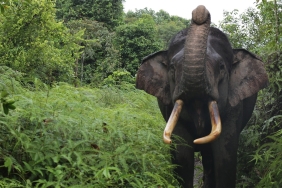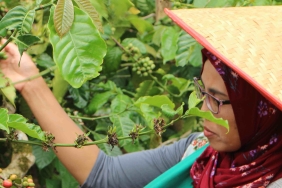DINGO MARKUS WINS INTERNATIONAL AWARD
By: Lia Syafitri
A resident of Tanjung Village, Mentebah District, Kapuas Hulu Regency, West Kalimantan, has won an international award from The Paul K. Feyerabend Foundation. Indonesia's best son is Dingo Markus. Thanks to his services in strengthening local capacity, he was selected as one of the world's best figures from the Swiss-based foundation (co-winner).
The biggest effort Dingo Markus has made is his success in changing the paradigm of community thinking for the better. He wants to see the people of Tanjung Village become economically independent without having to destroy the forest area. Of course, this is not an easy matter.
As the village head at that time, he felt that there was something wrong with the common ways that the residents had been doing. Rotational cultivation had not been intensive and would exacerbate forest destruction if the population continued to grow and the need for agricultural land increased. So he formulated a number of strategic steps starting from the family environment and the village apparatus.
The foundation is the abundant natural resources, but Tanjung Village is still categorized as a poor village. The community only relies on fields and rubber plantations for their livelihoods. Meanwhile, management space is very limited due to the status of the area around the village which is included in the protected area.
Tanjung Village is administratively located in Mentebah District, Kapuas Hulu Regency, West Kalimantan. This village is the most remote village and is located about 75 kilometers south of Putussibau City. Its position is around the Muller Mountains.
Seeing this reality, Dingo Markus did not remain silent. He is trying his best to find a solution so that the villagers live prosperously and can utilize the surrounding natural resources wisely/sustainably.
Along the way, these efforts often stumbled. In fact, total deadlock often lurks. As the village leader who was trusted from 2009 to 2015, Dingo Markus initiated a meeting of community, religious and traditional leaders, to find the best way for the welfare of the residents.
"There are many ideas, but they cannot be implemented if they are not accompanied by the right solution. For example, people are prohibited from clearing forests. If it's just forbidden, it's easy. But people can get angry if they are only prohibited without a solution," said Dingo Markus.
So far, he admits that the community is very dependent on the forest. It is not uncommon for residents to be forced to clear the forest for the benefit of the fields. After harvesting, the former cultivated fields are abandoned and they open up new areas.
This kind of farming system is a scourge for the village government. Wanting to prohibit it without a solution is also considered unwise. As a result, the protected forest around the village will also remain damaged due to the activities of residents.
Dingo Markus wants to see his village developed and independent with an adequate level of community economy. He realizes that if the economic level of the community is still below standard, the rate of forest destruction will definitely accelerate.
The reason is simple. People will never be controlled to clear forests to fulfill their needs. People will never want to know whether the status of the area is protected or not. Because, what is in their minds is a matter of life or death.
There is no other choice for Dingo Markus except to encourage capacity building of his people through a number of actions. Among other things, increasing capabilities in the plantation, agriculture, ecotourism, and Village-Owned Enterprises (BUMDes) sectors.
In the process, a number of offers began to arrive. In 2010 - 2011, for example, a palm oil company that wanted to enter Tanjung Village offered a number of programs. But the residents refused. They thought that if palm oil came, the trees in the forest would be cut down, and the river water would be polluted.
Collaboration with WWF Indonesia
In the midst of the difficulties faced by residents, WWF-Indonesia West Kalimantan Program was present and socialized the Muller Schwaner Program. Discussions were held with the villagers on the presence of the non-governmental organization. Finally, the village government accepted WWF's presence. Using the method of Participatory Conservation Planning, WWF tried to help build a new vision in the management of the area and community-managed areas in this village. Dingo Markus realizes that without help from other parties, Tanjung Village is difficult to improve.
From the introduction to this institution, Dingo Markus slowly opened his mind that coordination and extracting program information from the government is very important. Through the mentoring agency, he learned how to convey the aspirations of the community towards development in Tanjung Village, so that programs from the government began to flow to Tanjung Village, including from the Kapuas Hulu Plantation and Forestry Service with the assistance of rubber, agarwood, and fruit seedlings. In addition, the Kapuas Hulu Regional Government also encouraged Dingo Markus to include Tanjung Village in the Wahana Lingkungan Activity in 2015, so that Tanjung Village won first place at the West Kalimantan Provincial level and represented West Kalimantan at the National Level.
In terms of benefits, he acknowledged that many things can be learned by residents from the program that has been running. The community is trained to have the ability to grafting superior rubber and making nurseries. This automatically has a direct impact on the economy of the village community.
In addition, the community is also educated about rubber plantation management such as the Internal Control System (ICS) in the clean rubber processed material (Bokar) business. Proposed village forest, strengthening the network of the Semangai Farmer Group Association (Gapoktan) of Tanjung Village nationally by becoming a member of the Indonesian Organic Alliance (AOI), and Village Medium-Term Development Planning (RPJMDes).
A year after WWF entered the Tanjung Village area, other non-governmental organizations arrived. The Tanjung Village Forest was initiated. This collaboration between non-governmental organizations and the community eventually led this village of 1,031 people to the gate of an independent green village.
On the basis of a proposal from the Tanjung Village Government assisted by a companion institution, in January 2014 the Tanjung Village Forest received a Working Area Determination (PAK) of Village Forest covering an area of 2,520 hectares from the Ministry of Forestry through the Decree of the Minister of Forestry of the Republic of Indonesia Number: 66/Menhut-II/2014 and on February 13, Tanjung Village received Village Forest Management Rights (HPHD) which was named BUKIT BELANG through the Decree of the Governor of West Kalimantan Number 401/EKBANG/2015.
An Inspirational Figure for Villagers
Despite all the successes above, the figure of Dingo Markus is a source of inspiration for the people of Tanjung Village. A simple person with a strong determination, he is quite a role model for other villagers.
"Look at God's grace in front of your eyes. Clear flowing water, dense forests overgrown with various types of trees. All of this is a source of life and a gift from our children and grandchildren that must be preserved. They help us, we help them," said Dingo Markus, pointing towards the Suy'uk River.
Through such simple words, Dingo Markus with his philosophy of life and his belief that we need to maintain a balance between conservation and development.
True to his belief, Dingo Markus has mobilized people to start the restoration of degraded forest areas. Together, they planted various types of trees such as fruit trees, rubber, coffee and other trees in Tanjung Village.
A humble and unassuming demeanor disguises a strong charismatic and distinguished leadership to be emulated. He has successfully brought Tanjung Village as a green village through conservation initiatives and restoration of critical areas.

